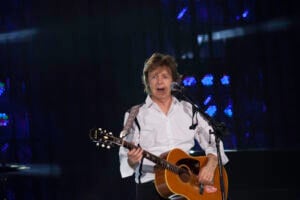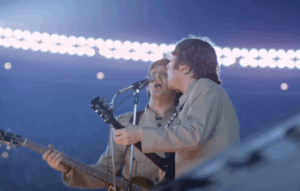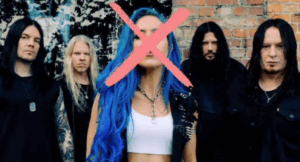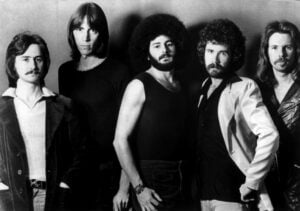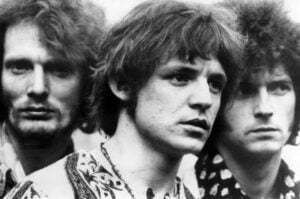4 Dolly Parton Songs Radio Refused to Play — and One Even Got Banned at School
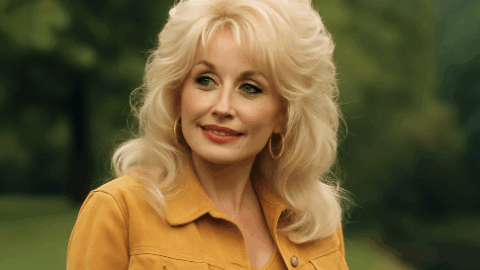
Dolly Parton Society of Rock
Dolly Parton has long been known for her big heart, big hair, and even bigger talent. But behind her sparkling outfits and cheerful demeanor lies an artist who has never shied away from writing about difficult, emotional, or socially sensitive subjects. Some of her songs were so controversial that radio stations refused to play them for years. And surprisingly, even in 2023, a school removed one of her songs from a children’s presentation because it was deemed “too much.”
Originally, three Dolly Parton songs were considered problematic, along with a modern collaboration with her goddaughter, Miley Cyrus, that faced restrictions decades later.
Here is the story behind those songs.
“Rainbowland” — The Song a School Removed in 2023
In early 2023, news emerged about an elementary school in Waukesha County, Wisconsin, that had removed “Rainbowland” from a first-grade spring program. The song, recorded by Miley Cyrus with Dolly Parton as a guest, appeared on Cyrus’ Younger Now album. Bright and uplifting, it speaks of a world where people accept each other’s differences and prioritize kindness. For many, it was simply a call for unity.
However, the school district worried that the song could be interpreted as carrying an LGBTQ+ message, deeming it too “controversial” for their program. For weeks, parents and community members debated the decision, questioning why a basic message of inclusiveness was suddenly off-limits. Dolly Parton noted that when the song was first released, it was meant as a feel-good anthem about being kinder and more loving to one another—a gentle message that somehow led to its prohibition decades later.
“Evening Shade” (1969)
Dolly’s music had already stirred controversy long before “Rainbowland.” One early example is “Evening Shade” from her 1969 album My Blue Ridge Mountain Boy.
Though Dolly’s personality was bright and cheerful, she often explored dark and emotional themes in her songwriting. “Evening Shade” tells the story of children in a harsh orphanage overseen by a strict matron who believes discipline is the answer to everything. The song vividly portrays the children’s struggles, fleeting moments of happiness, and their ultimate desperate act of setting fire to the building while the cruel matron is still inside.
Radio programmers were shocked. At the time, country music rarely addressed abuse, neglect, or children’s extreme actions, especially from an emerging artist. Many stations refused to play the song, fearing that listeners might be upset or misinterpret Dolly as endorsing violence. Dolly later explained that she wasn’t pushing an agenda—she was simply telling a story that had unfolded in her imagination, much like a movie. Over time, the song became a testament to Dolly’s ability to tackle difficult subjects before the public was ready.
“Down From Dover” (1970)
Dolly’s next bold move came with her 1970 album The Fairest of Them All, which included the song “Down From Dover.” The song centers on a young woman who becomes pregnant, is rejected by her family and the baby’s father, and ultimately experiences the heartbreak of a stillborn child.
In the early 1970s, country radio rarely aired songs about single mothers, especially ones with such tragic endings. Dolly’s mentor, Porter Wagoner, warned her that it might never receive airplay—and he was right. Yet the song resonated with other musicians. Skeeter Davis, Nancy Sinatra with Lee Hazlewood, Marianne Faithfull, and even Dolly’s sister Stella Parton later recorded it. Dolly herself revisited the song decades later for her Little Sparrow album, demonstrating its enduring significance.
Today, “Down From Dover” is often considered one of her most underappreciated masterpieces, praised for its raw honesty and emotional depth.
“The Bargain Store” (1975)
By the mid-1970s, Dolly had become a household name, but she still faced controversy. Her 1975 song “The Bargain Store” uses a clever metaphor: Dolly compares herself to a secondhand store, acknowledging a past marked by hurt while expressing a capacity for love.
The song’s message was clear: healing, hope, and the willingness to love again. Yet some listeners interpreted the “bargain store” metaphor as having sexual connotations, leading several radio stations to ban it. Dolly has expressed surprise at the reaction, emphasizing that her intent was thoughtful and artistic rather than suggestive. Despite the controversy, the song became one of her personal favorites, celebrated by fans for its honesty and lyrical sophistication.
A Career Built on Bravery and Heart
Dolly Parton has never shied away from challenging subjects. She approaches her stories with empathy and honesty, whether exploring social issues, family struggles, or personal pain. Even when radio stations or school boards tried to censor her work, her music reached people who recognized the humanity in her words.
Songs like “Evening Shade,” “Down From Dover,” “The Bargain Store,” and even “Rainbowland” demonstrate that music can spark conversation, change minds, and offer hope—all at once.










